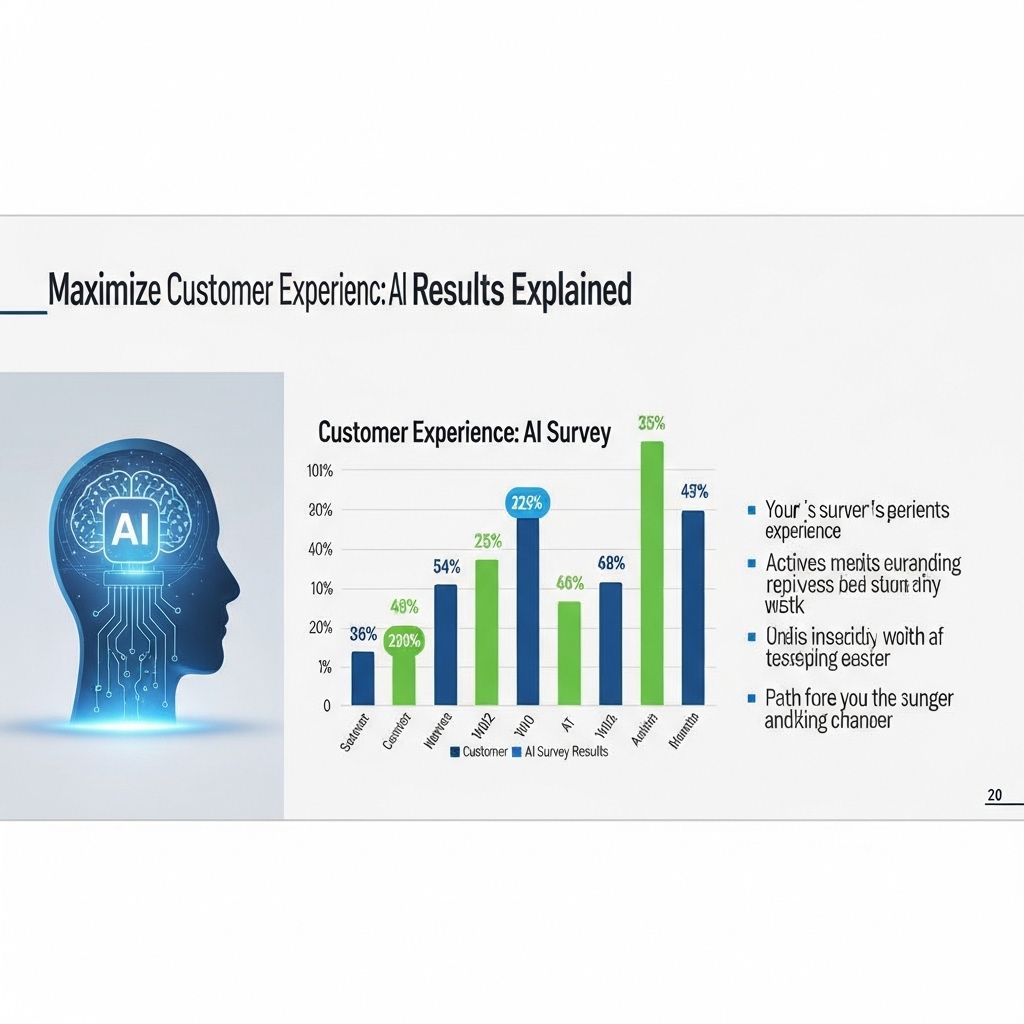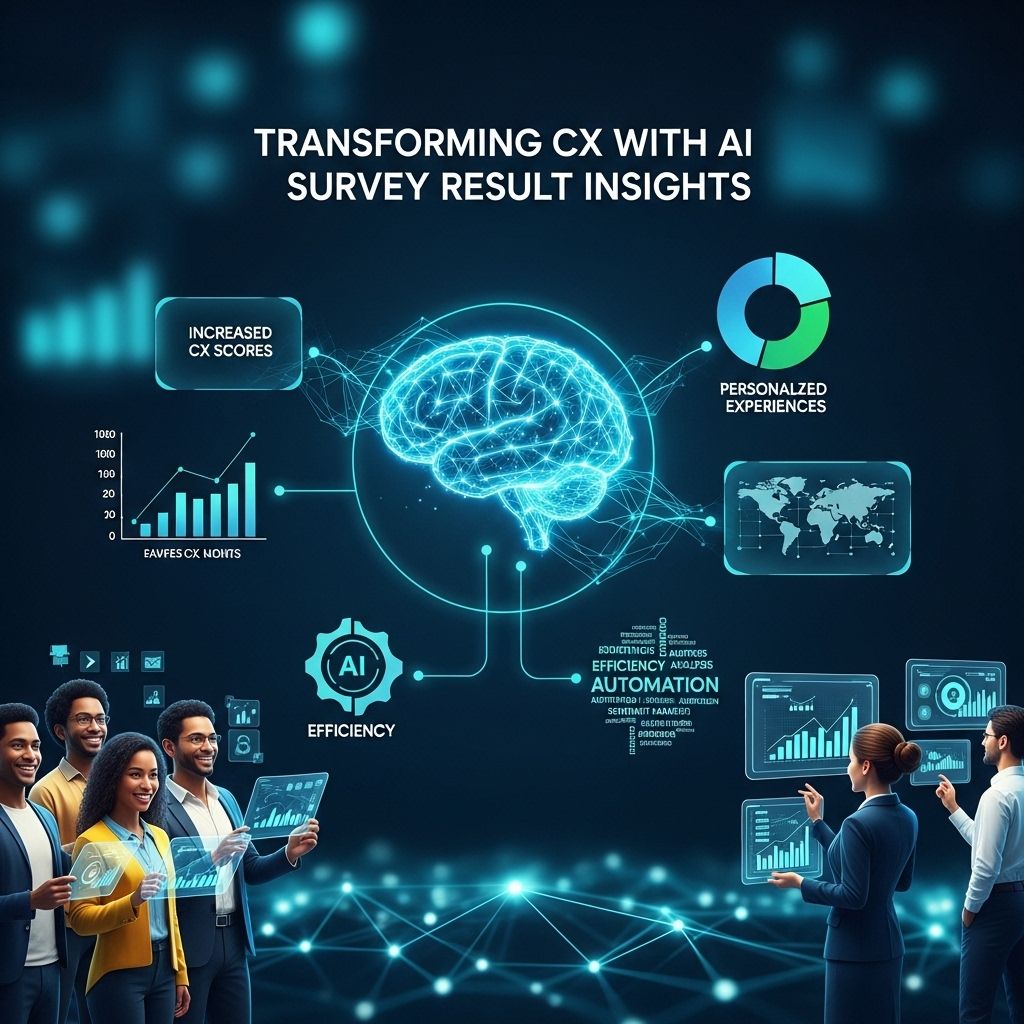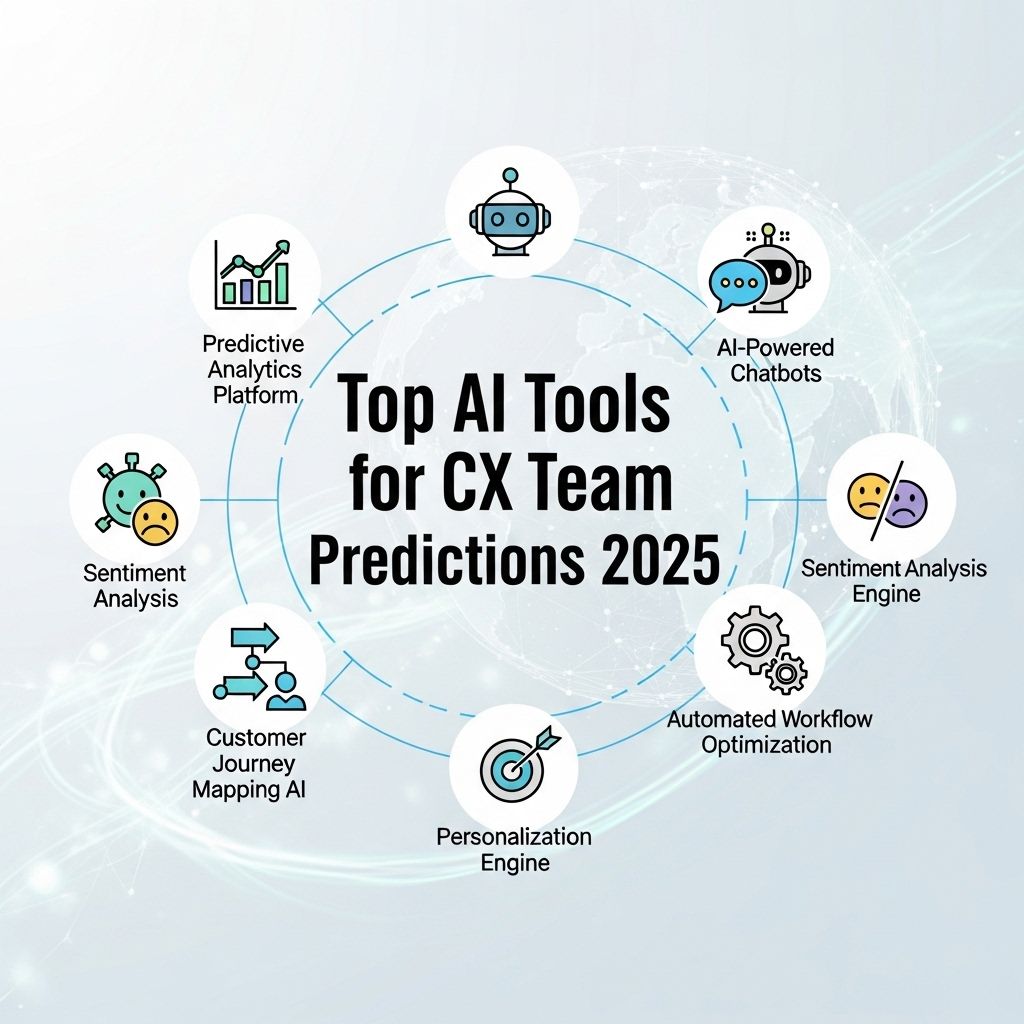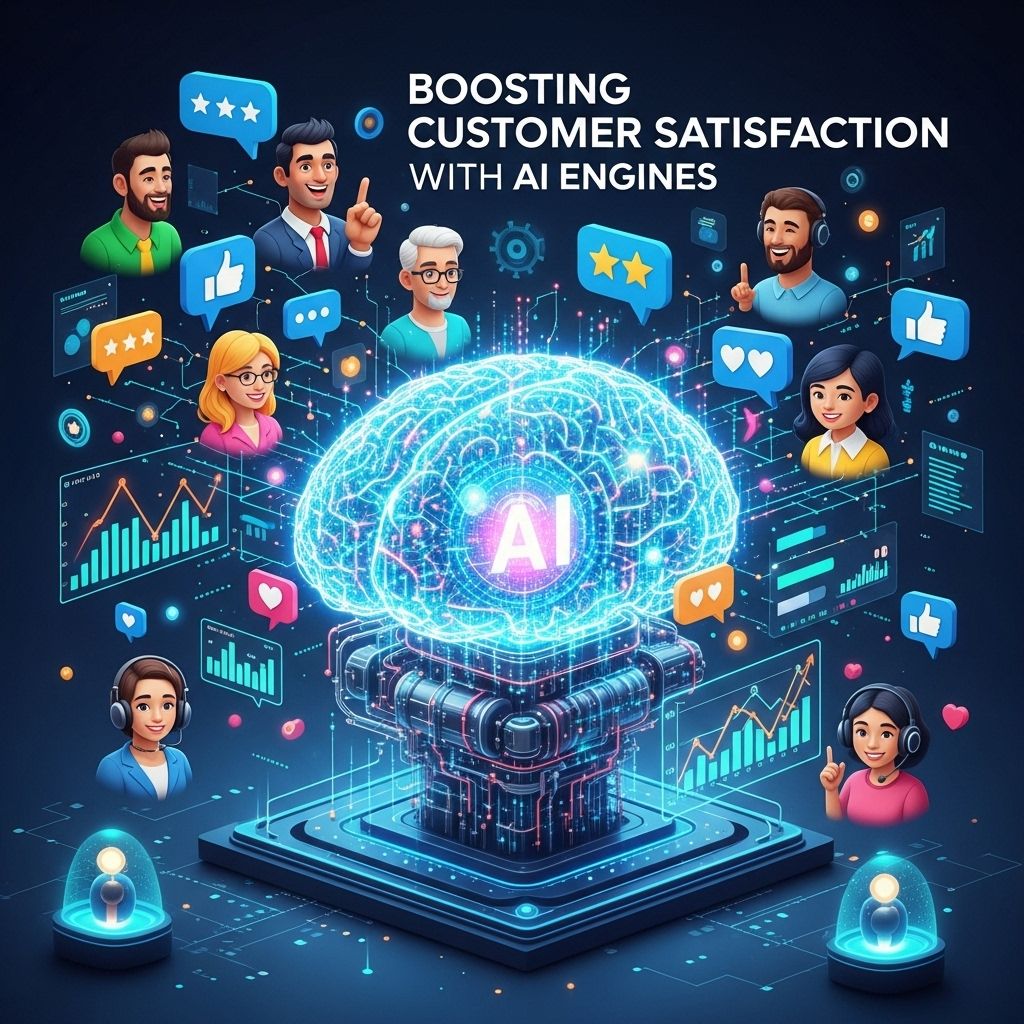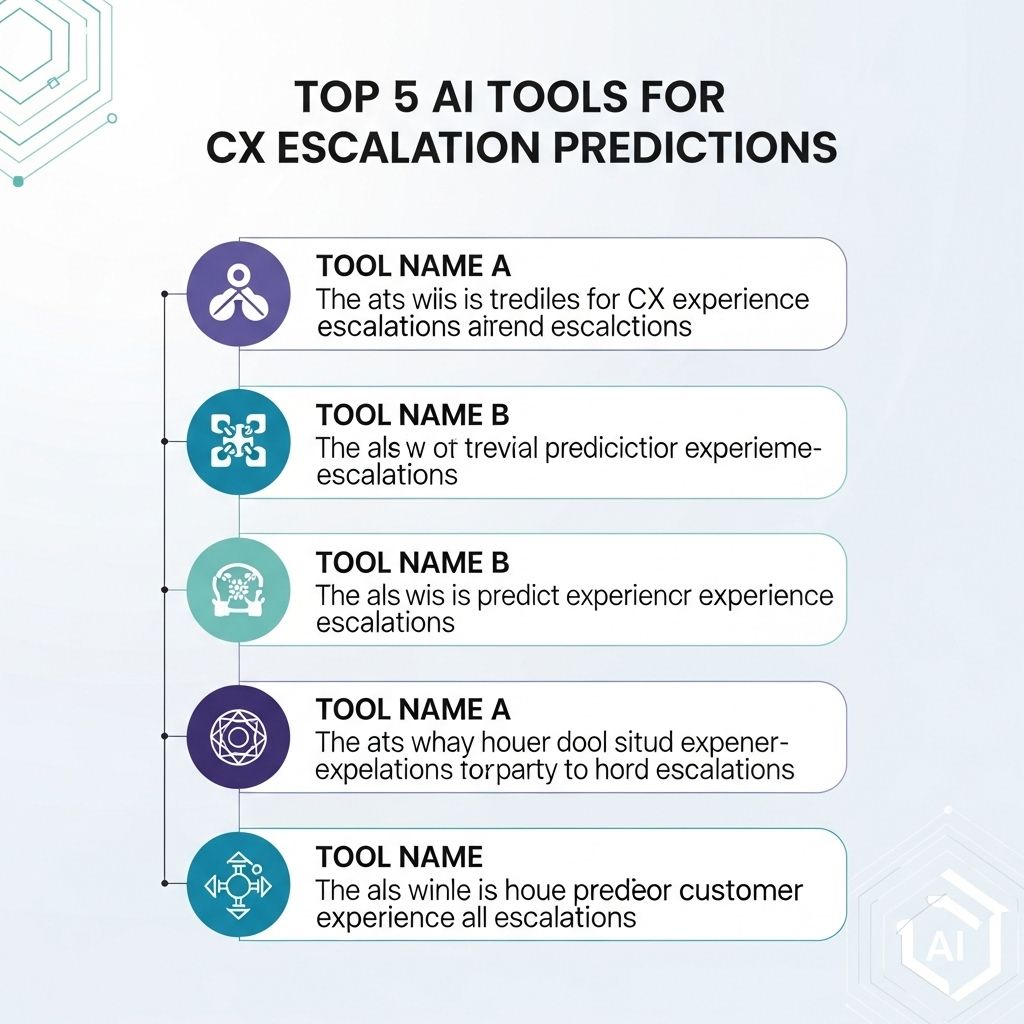Transform Your CX Strategy with AI Insights
Discover how AI insights can revolutionize your customer experience strategy and drive business growth in today's digital landscape.

In an era where customer expectations are rapidly evolving, leveraging AI insights to enhance customer experience (CX) has become a pivotal strategy for businesses. As companies strive to stay ahead of the competition, integrating artificial intelligence in CX initiatives not only optimizes service delivery but also personalizes interactions, making them more relevant and engaging. In this article, we will explore how AI can transform CX strategies, the benefits it brings, and practical steps for implementation.
In today’s competitive landscape, leveraging AI insights can significantly enhance your customer experience (CX) strategy. By understanding customer behavior and preferences through data analysis, businesses can tailor their interactions and offerings more effectively. To visualize your brand’s potential impact, see how to use 3D mockups effectively.
Table of Contents
Understanding Customer Experience (CX)
Customer experience encapsulates every interaction a customer has with a brand, from initial awareness through post-purchase support. A positive CX builds loyalty, while a negative one can lead to lost customers. To truly understand and enhance CX, companies must rely on data-driven insights, which is where AI comes into play.
Key Components of CX
- Personalization: Tailoring experiences to individual customer needs and preferences.
- Consistency: Ensuring uniformity in messaging and service across all touchpoints.
- Responsiveness: Quickly addressing customer inquiries and concerns.
- Engagement: Creating meaningful interactions that foster relationships.
The Role of AI in Enhancing CX
AI can analyze vast amounts of customer data to derive insights that help businesses understand consumer behavior. Here are several ways AI can significantly enhance customer experience.
1. Predictive Analytics
With AI-powered predictive analytics, businesses can anticipate customer needs and preferences based on historical data and patterns. This includes:
- Identifying potential churn risk by analyzing customer behavior.
- Forecasting future product demand.
- Recommending products or services based on past purchases.
2. Chatbots and Virtual Assistants
AI-driven chatbots can provide 24/7 customer support, handling inquiries and complaints efficiently. The benefits include:
- Reducing response times and increasing customer satisfaction.
- Handling multiple queries simultaneously without fatigue.
- Gathering customer feedback through automated interactions.
3. Sentiment Analysis
AI tools can perform sentiment analysis on customer feedback, social media mentions, and reviews to gauge customer sentiment towards a brand. This helps in:
- Identifying areas for improvement in services or products.
- Understanding customer emotions, which aids in tailoring marketing strategies.
- Enhancing brand reputation management efforts.
Concrete Benefits of Implementing AI in CX
Investing in AI for CX is not just about keeping up with technology; it brings substantial benefits, including:
| Benefit | Description |
|---|---|
| Improved Efficiency | Automation of repetitive tasks allows teams to focus on high-value activities. |
| Cost Reduction | AI can reduce operational costs associated with customer service. |
| Enhanced Personalization | AI enables hyper-personalization, tailoring offers and recommendations to individual preferences. |
| Better Decision Making | Data-driven insights allow businesses to make informed decisions that align with customer desires. |
Steps to Integrate AI into Your CX Strategy
To successfully implement AI into your CX strategy, consider the following steps:
1. Define Objectives
Identify specific goals for your CX strategy, whether it’s increasing customer satisfaction scores, reducing response times, or boosting sales.
2. Gather Data
Collect relevant customer data from various touchpoints, ensuring it is comprehensive and up-to-date.
3. Choose the Right Tools
Select AI tools that best fit your business needs. Options include:
- Predictive analytics platforms
- Chatbot frameworks
- Sentiment analysis software
4. Train Your Team
Ensure that your team understands how to utilize AI tools effectively. Provide training sessions to boost their confidence and skills.
5. Monitor and Adjust
Continuously monitor the impact of AI tools on your CX strategy. Be ready to make adjustments based on performance metrics and feedback.
Challenges in Implementing AI for CX
While the benefits of AI are numerous, several challenges can hinder successful implementation:
Data Privacy Concerns
Customer data must be handled responsibly to comply with regulations like GDPR. Transparency in data collection and usage is vital.
Integration with Existing Systems
Compatibility issues between new AI tools and legacy systems can pose challenges. Consider phased implementations or using APIs for smoother integration.
Skill Gaps
Not all teams may have the necessary skills to utilize AI effectively. Investing in training and possibly hiring specialized talent may be required.
Conclusion
The integration of AI insights into customer experience strategies is no longer a futuristic concept but a present-day necessity. Organizations that successfully harness AI will not only meet but exceed customer expectations, fostering loyalty and driving growth. By understanding the core components of CX, leveraging predictive analytics, chatbots, and sentiment analysis, and being aware of potential challenges, businesses can transform their strategies to align with a fast-evolving customer landscape.
FAQ
What is CX strategy and why is it important?
CX strategy refers to the approach a company takes to enhance customer experience. It’s important because a well-defined CX strategy can lead to increased customer satisfaction, loyalty, and ultimately higher revenue.
How can AI improve customer experience?
AI can analyze vast amounts of customer data to provide insights, automate responses, personalize interactions, and predict customer needs, thereby enhancing the overall customer experience.
What are some examples of AI tools used in CX?
Examples of AI tools include chatbots for customer service, predictive analytics to forecast customer behavior, and sentiment analysis tools that gauge customer feedback.
How do I start integrating AI into my CX strategy?
Start by identifying specific customer pain points, then research AI solutions that address those issues. It’s also essential to train your team on how to effectively use these new tools.
What are the challenges of using AI in customer experience?
Challenges include data privacy concerns, the need for high-quality data, integration with existing systems, and ensuring that AI solutions are user-friendly for both employees and customers.
Can AI completely replace human interaction in customer service?
While AI can automate many tasks and enhance efficiency, it is unlikely to fully replace human interaction, as many customers still prefer personal touch in complex situations.



